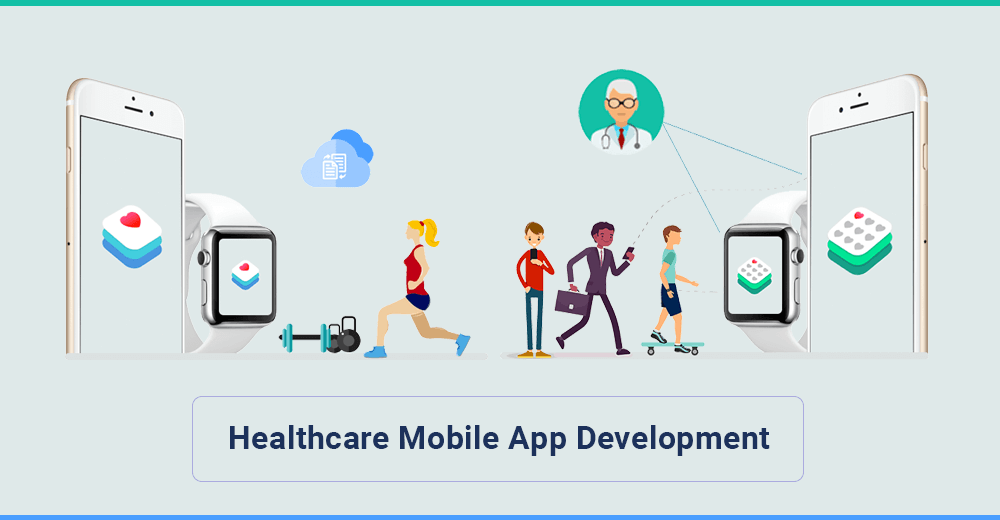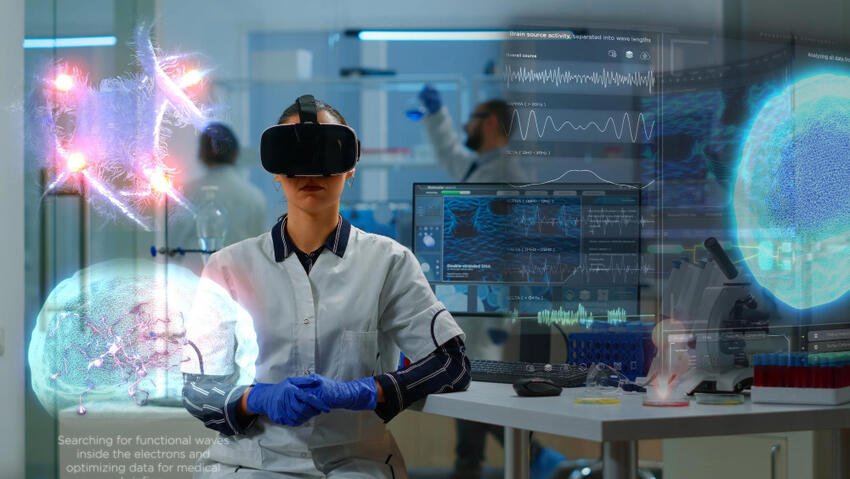The continuous advancement of technology has resulted in significant changes in a range of domains and industries. While technological advances are transforming every industry, the healthcare industry and healthcare app development are evolving at a phenomenal rate.
It is inevitable that the number of emerging healthcare apps on the market will increase. Patients and healthcare providers may now interact more effectively thanks to these technological advancements.
Healthcare professionals can communicate patient information with professionals to speed treatment and medications and lessen the risk of misinterpretation, misunderstanding, and improper medication with the help of technological advances. In the healthcare sector, however, there are various additional developments and advancements in use.
So, prepare yourself for some fantastic times ahead. In this article, we’ll go over a list of advancing technologies in the healthcare industry. Read them all carefully to gain a thorough understanding of future and existing healthcare trends in 2021.
So, without any further ado, let’s look at the most exciting and potential trends in the healthcare industry, which can also be used for healthcare mobile app development.
Top Healthcare Trends to Expect in 2021
Below are some of the most prominent trends that are disrupting the healthcare industry. So, take a look!
#1. Artificial Intelligence: AI in Healthcare Industry
Artificial Intelligence is a technology that is propelling healthcare to its full potential. Workflow automation, mobile healthcare assistants, robot-assisted surgeries, precision medicine, medicinal dose, diagnosing, cybersecurity, and chatbots are all examples of artificial intelligence (AI) in healthcare. AI is presently being optimized for use in the diagnosis and treatment of chronic disorders, including cancer and tumor detection and therapy, as well as tracking dermatological changes induced by diseases like diabetes. The impact of AI is enormous and unquantifiable. It aids the departments by providing clarity and perfect scanning to determine the true source of the illness.
Moving on, here’s the next one!
#2. Telemedicine
Telemedicine enables patients and professionals to communicate via video conferencing or mobile apps from a distance. Numerous patients are also getting more comfortable with utilizing wearable technologies to track their health and sharing that information with their doctors. Following the COVID-19 pandemic in 2020, telemedicine adoption boomed. Healthcare professionals were able to provide continuity of treatment for COVID and non-COVID patients via telemedicine while also safeguarding themselves and the community from disease.
Many healthcare businesses are leveraging the benefits of telemedicine; you can also take advantage of this trend by getting your telemedicine app developed by the top mobile application development service providers.
Roll your sleeves up, it’s time to be creative!!
#3. 3D Printing
Many sectors, including the health industry, have a high demand for 3D printing. Bones, blood arteries, tiny organs, synthetic skin, and tissues can now be printed. It also enabled the printing of high-quality prosthetics and implants. What appeared to be a near-impossible task is now achievable. This would have a number of advantages. The capacity to create more tailored, fully functional elements for patients is one of the most important. Another benefit would be that this innovation is relatively inexpensive. This technology will also revolutionize medical training and healthcare app development.
Moving on,
#4. Smart Wearable Technology
Wearable devices provide a new way to collect data, promote prevention, and improve the quality of care for individuals, in addition to electronic health records or EHR. These devices capture data in real-time, which is subsequently collated and evaluated by a system, which can alert professionals to a concern with a patient. This enables professionals to be active and seek out those who may require rapid medical assistance without their knowledge.
Moving on,
#5. AR & VR
Another technology that doctors and healthcare professionals might benefit from is augmented reality and virtual reality. Using extended reality technologies, VR can assist doctors in self-training. Before operating on a human patient, doctors can utilize virtual reality to practice impending surgeries, take corrective actions, and develop remedies. According to Bisresearch Reports, the market of virtual reality and augmented reality in healthcare is expected to hit $11.14 billion by 2025.
Some other trends in the healthcare industry are:
- On-demand healthcare apps
- RPA “Robotic Process Automation”
- EHR systems
- Health CRM Software
- Blockchain
- Predictive Analytics
- IoMT
Final Words
As you’ve seen, many technological trends have radically changed the healthcare industry. Healthcare in the next decades will be very different from what it is now. If you provide healthcare services, it’s probably time to modernize your services and prepare for the coming modern age. Quytech, a Top mobile app development company, is helping to shape the advancement of the healthcare sector. All of these are rising trends that will transform healthcare, benefiting both patients’ health and healthcare practitioners’ productivity.
Thanks for reading; if you find this blog useful, share it with others because; sharing is caring!
Read Dive is a leading technology blog focusing on different domains like Blockchain, AI, Chatbot, Fintech, Health Tech, Software Development and Testing. For guest blogging, please feel free to contact at readdive@gmail.com.





